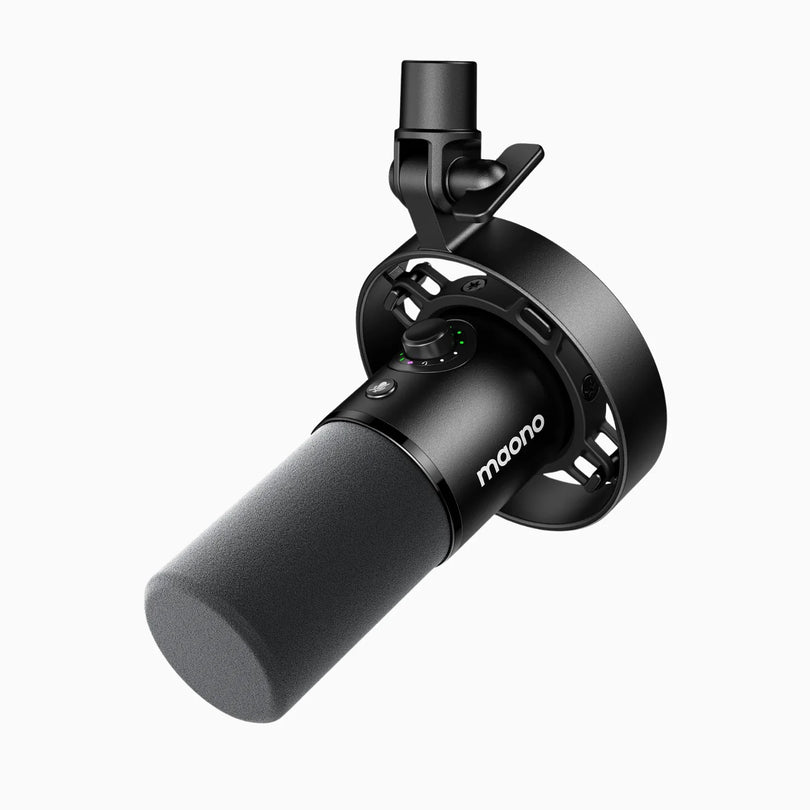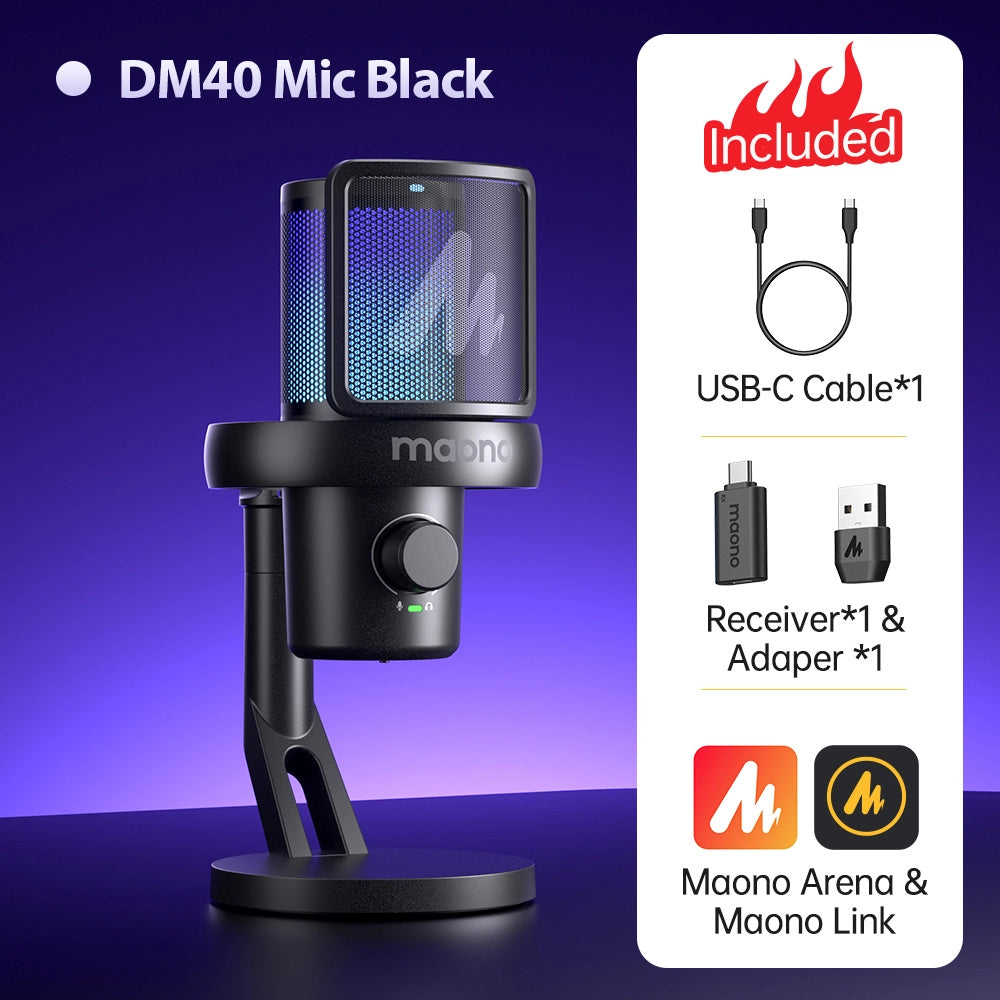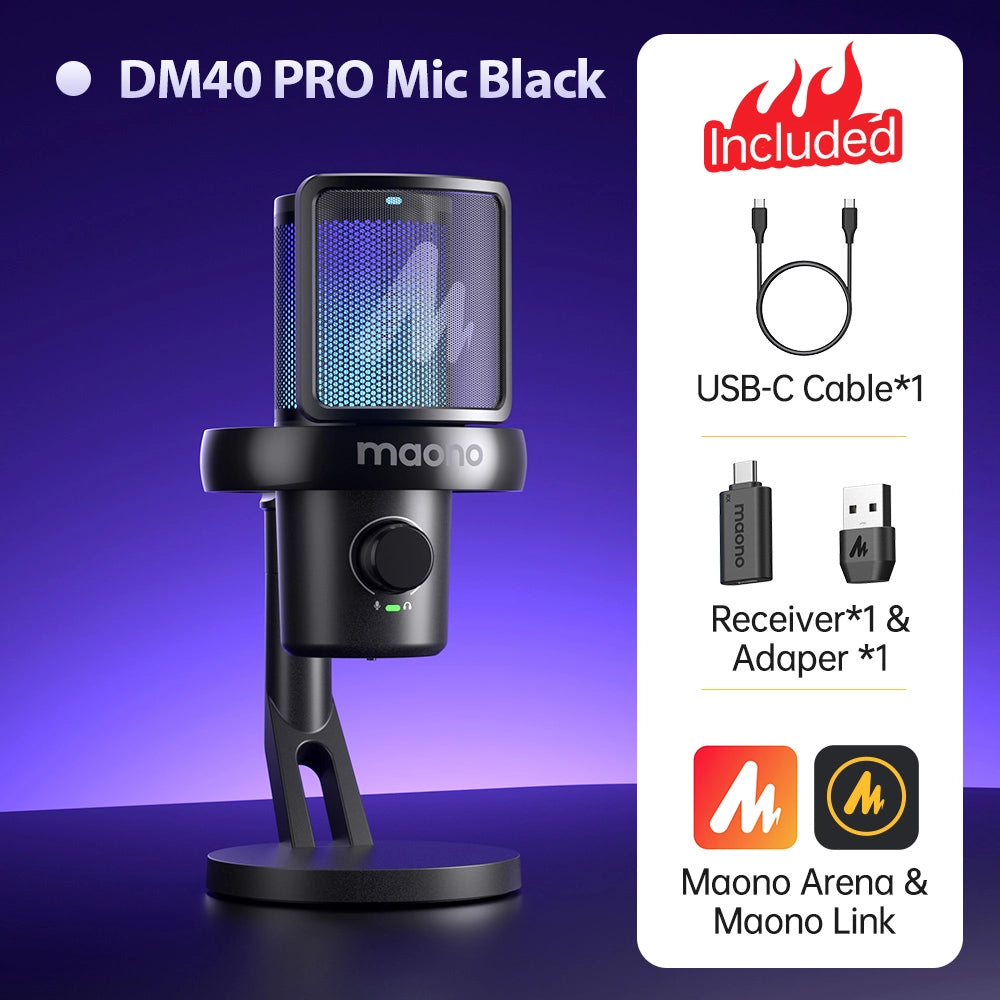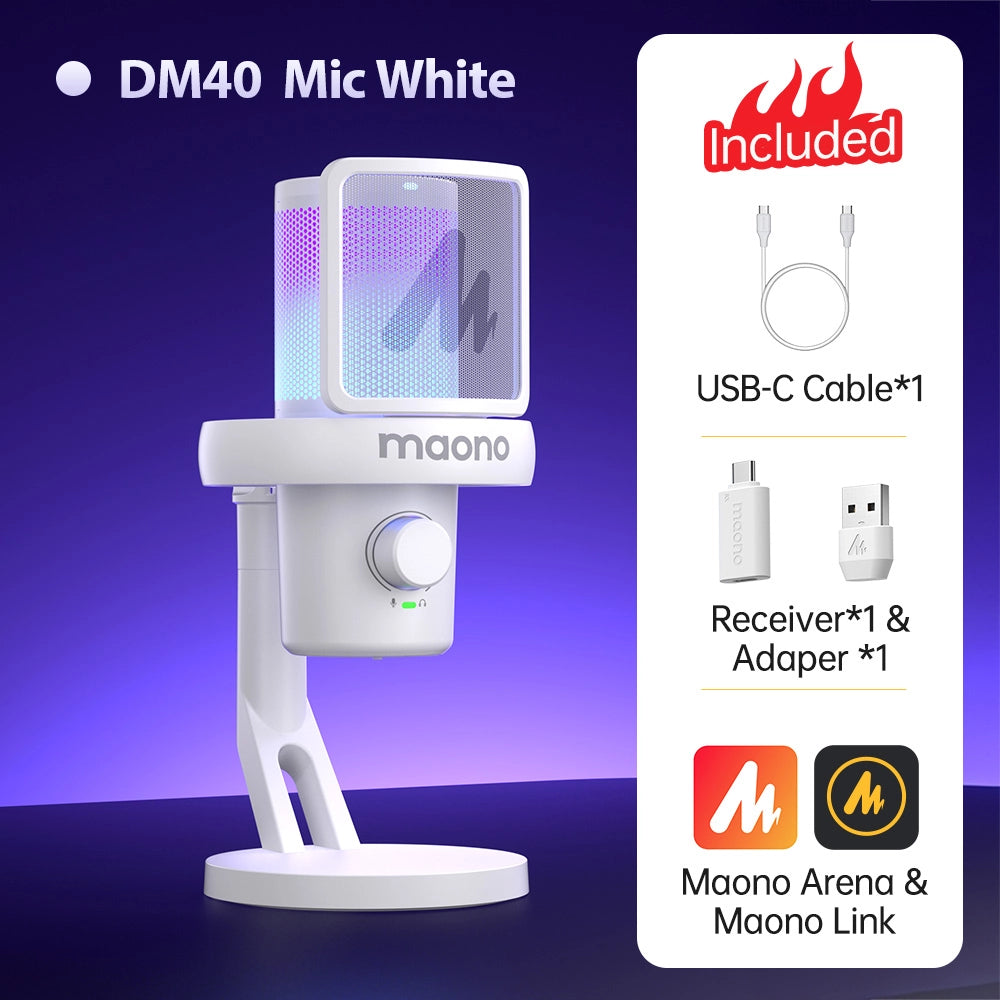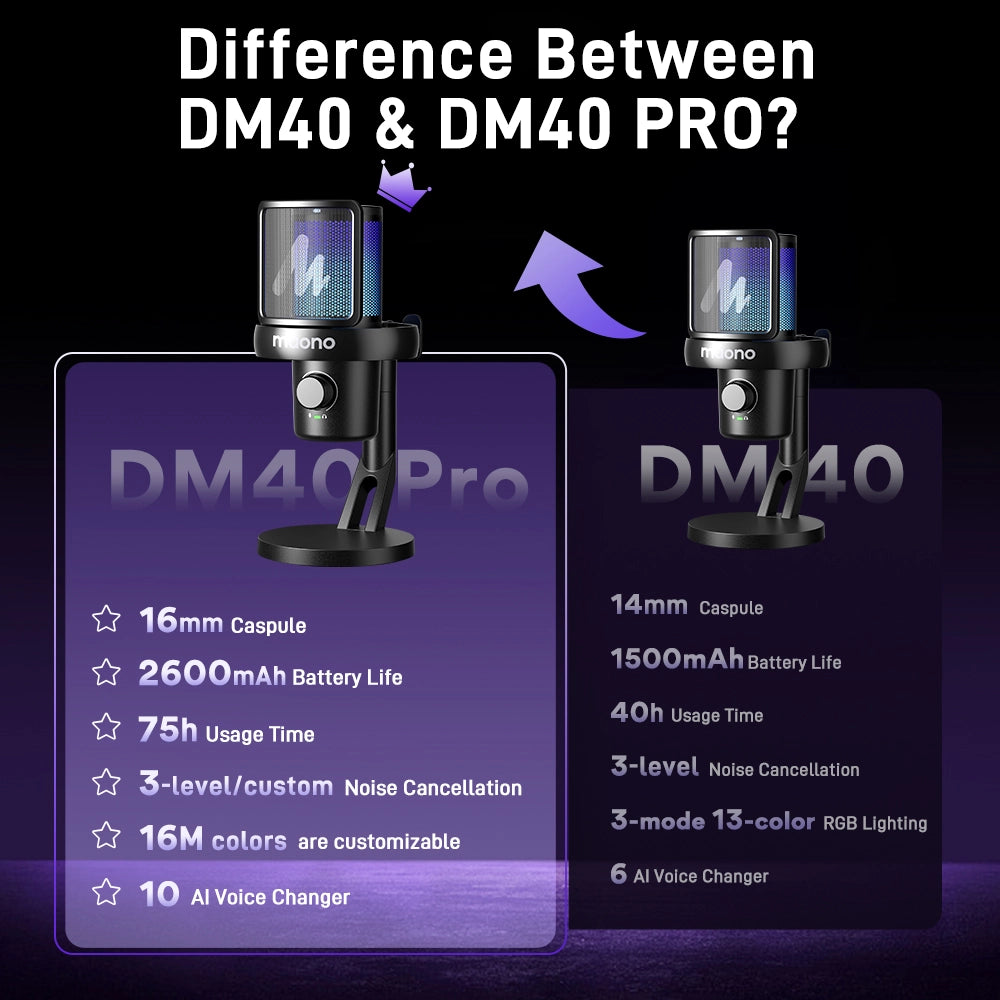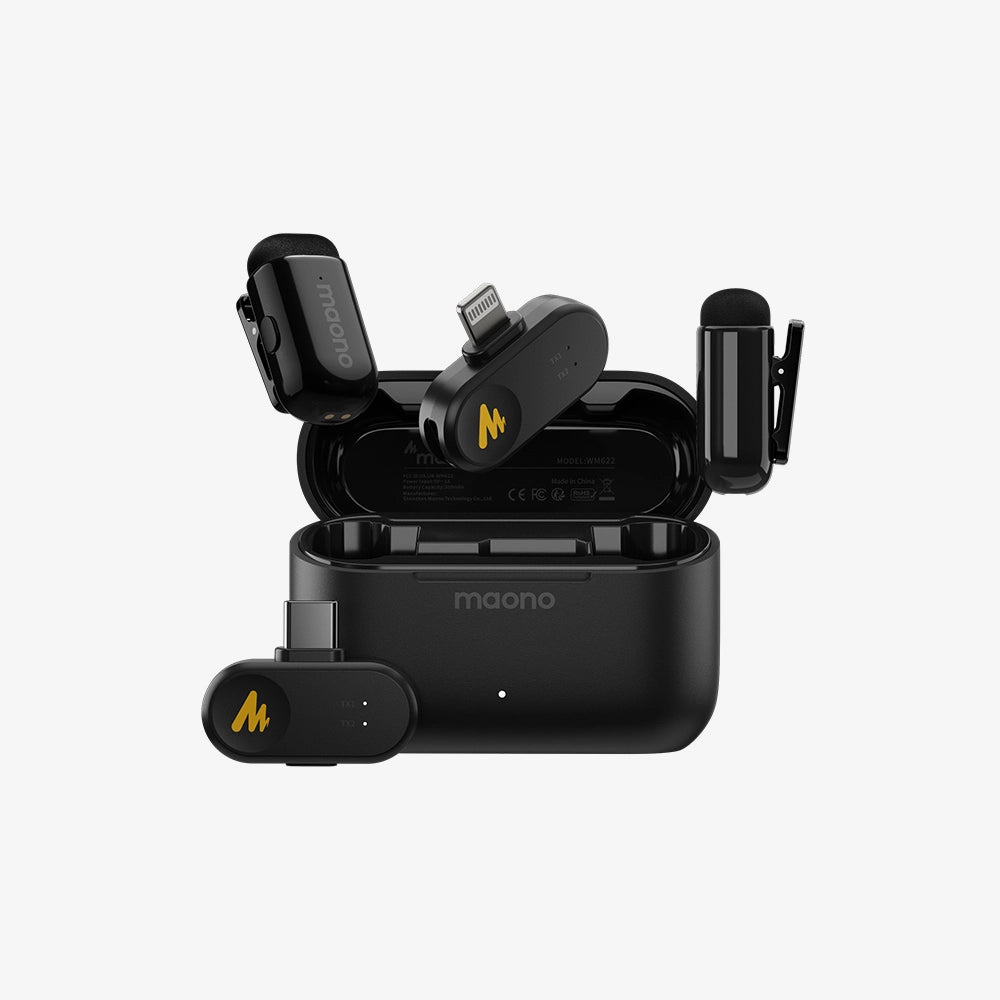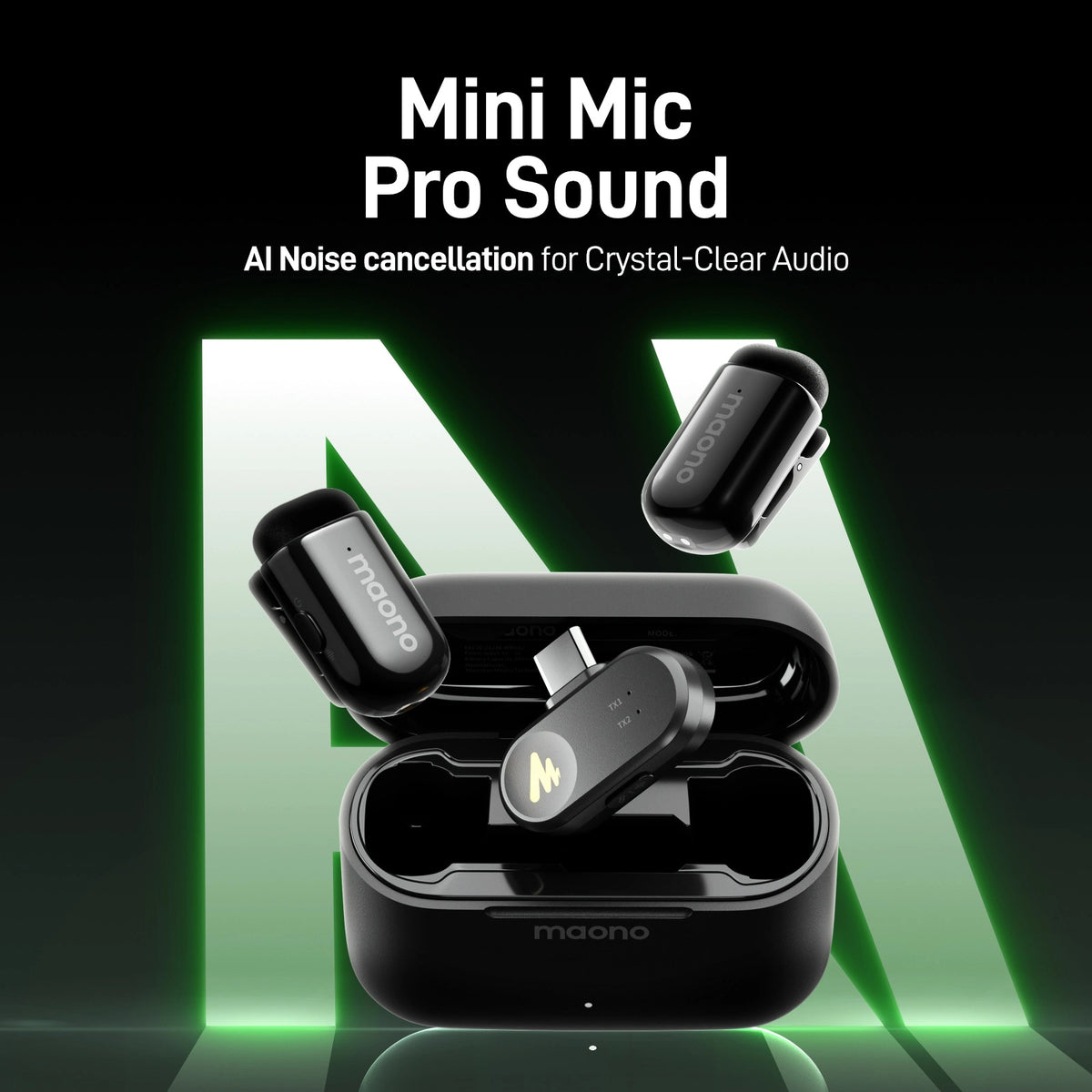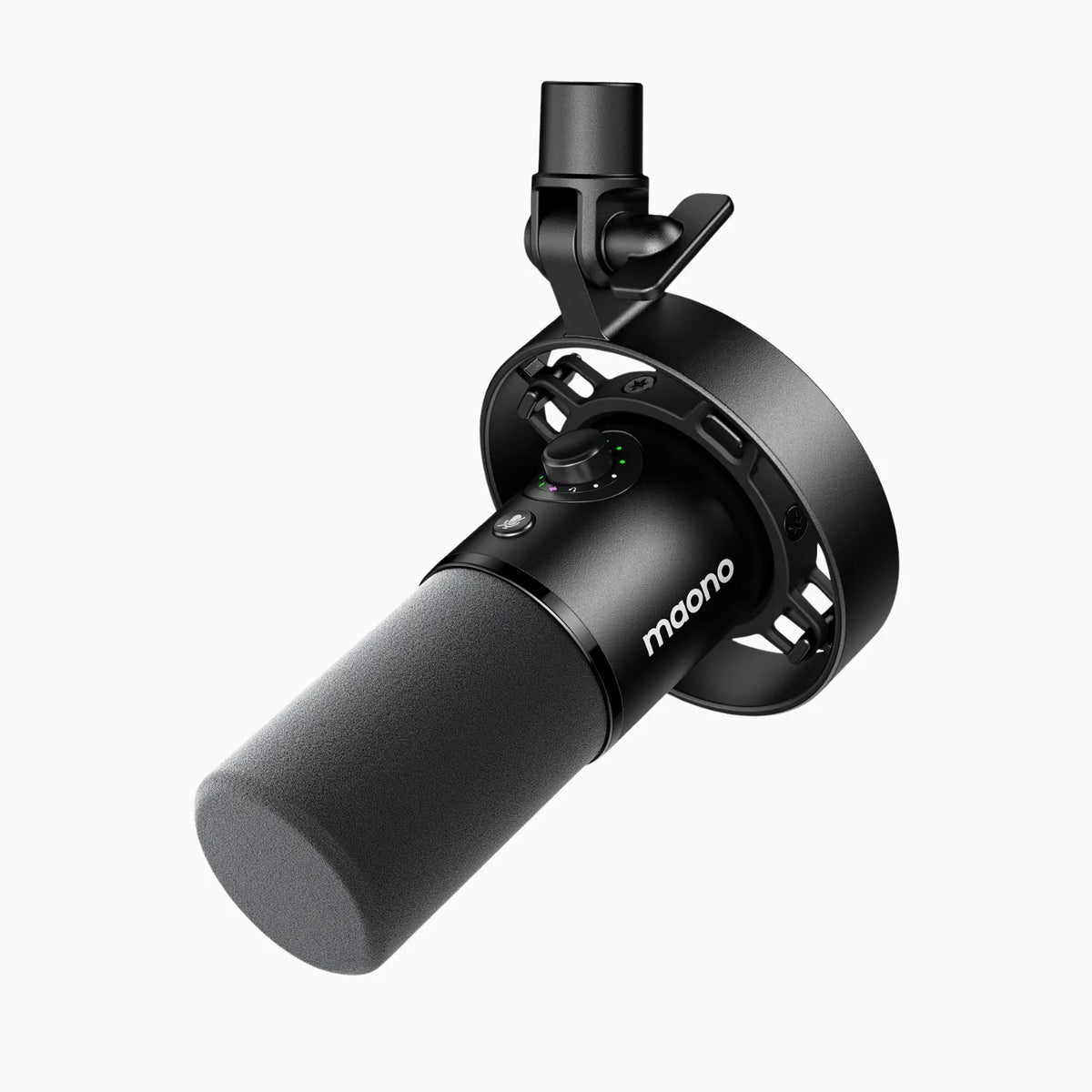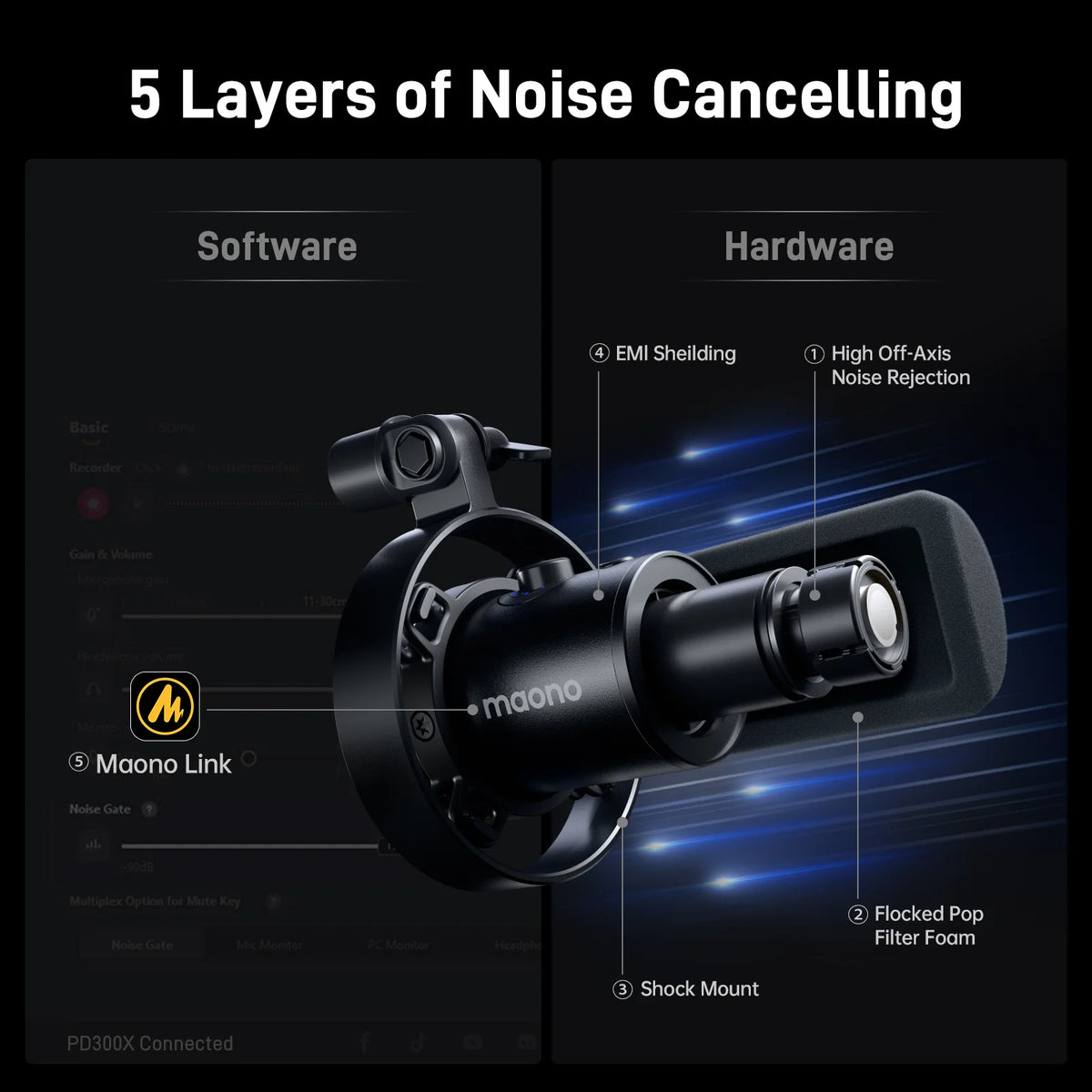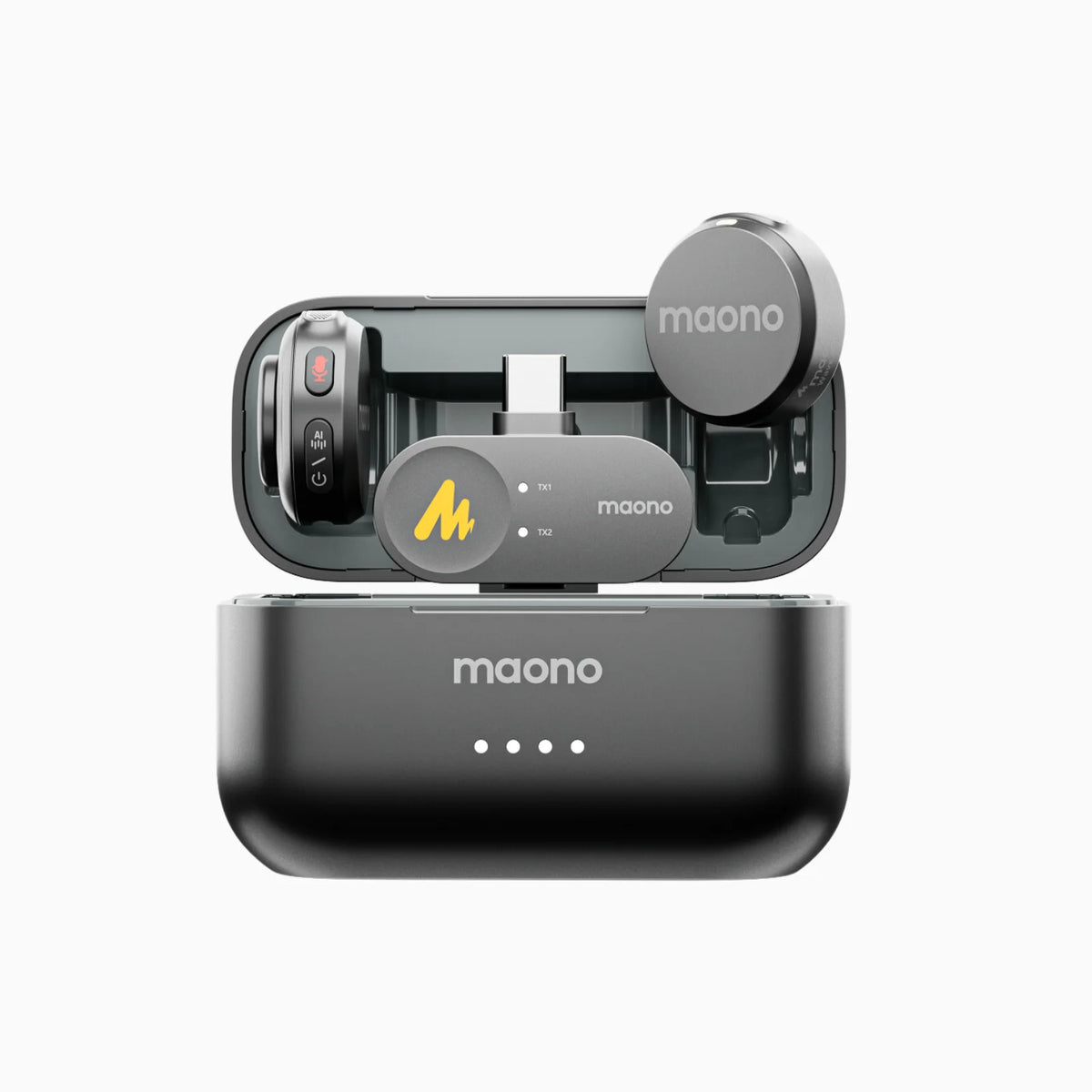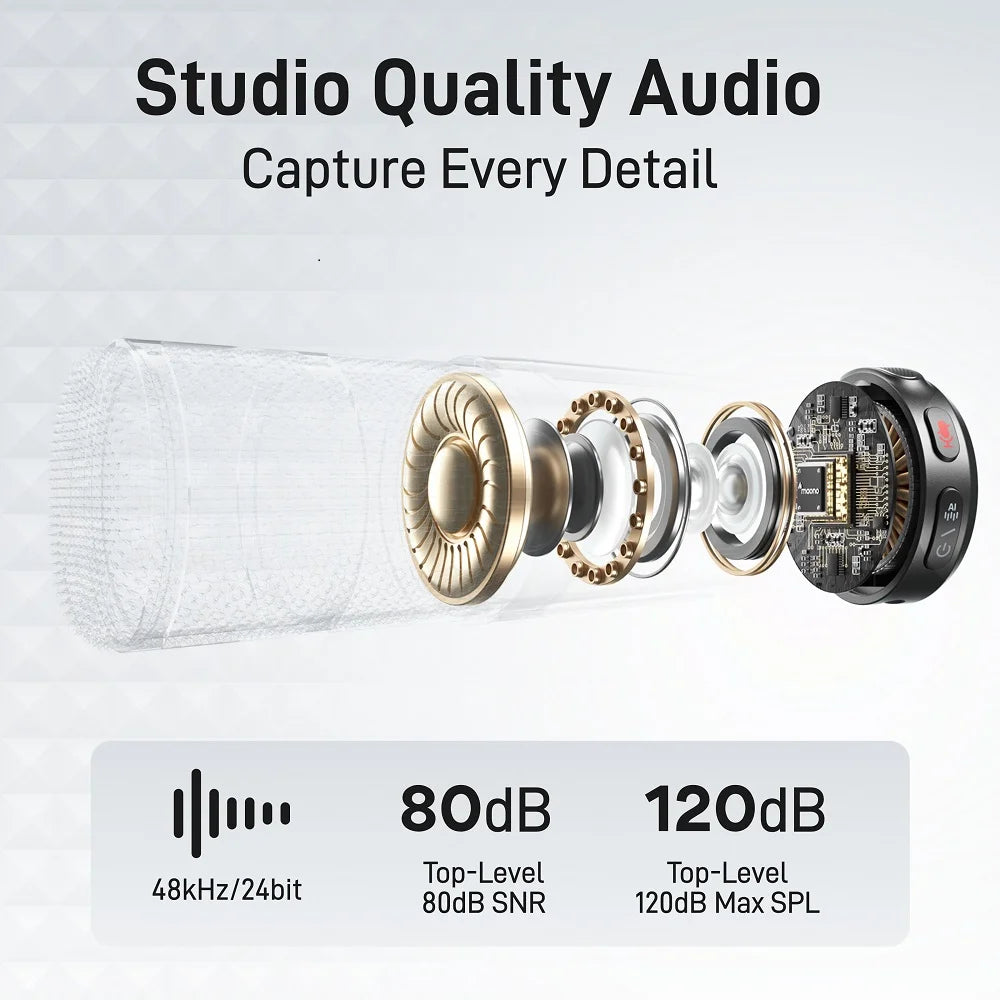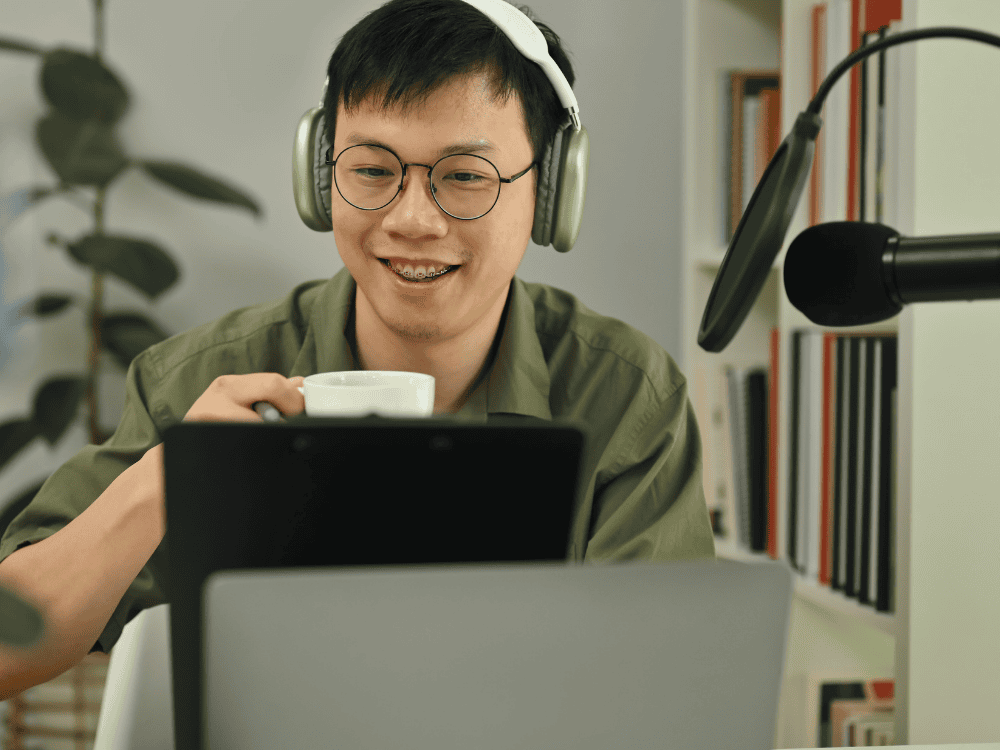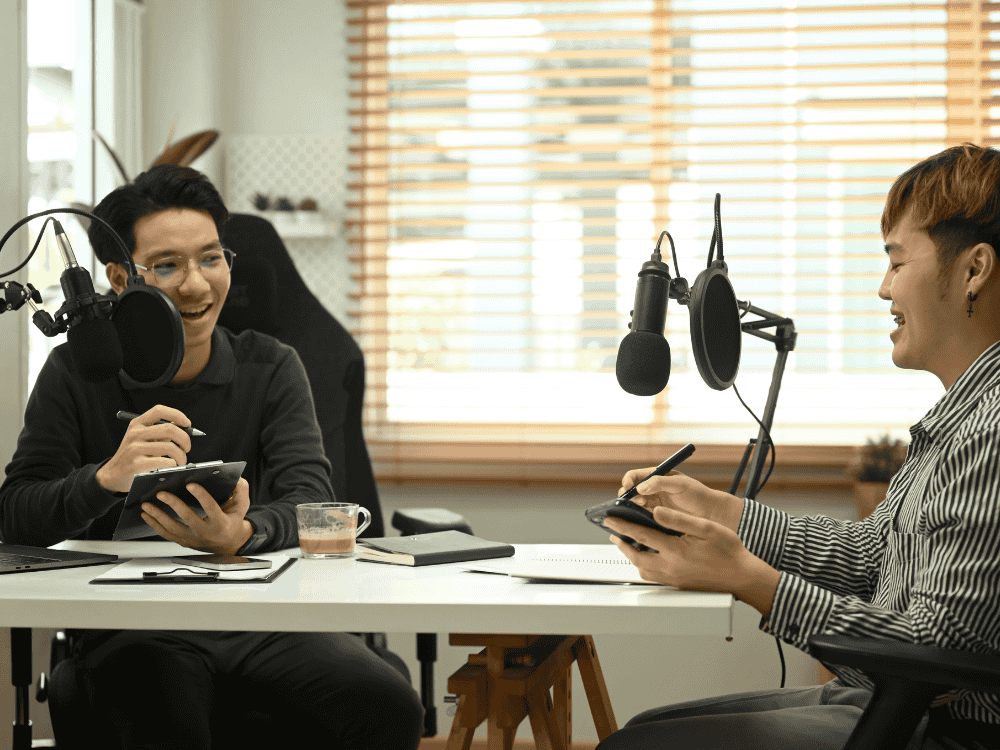The sound quality of your podcast matters and the right microphone is the key to captivating your audience. Choosing the perfect mic isn’t just about picking something that looks good; it’s about finding the tool to bring your voice to life, ensuring every word resonates with clarity and warmth. Whether you’re a seasoned podcaster or just starting, understanding what to look for in a podcast microphone can set you on the path to audio excellence.
Do You Need a Microphone to Start a Podcast?
When embarking on your podcasting journey, one of the most critical questions you might ask is whether you need a microphone. The answer is a resounding yes! While it's technically possible to record a podcast using just your computer's built-in microphone or even a smartphone, investing in a quality microphone can significantly enhance the audio quality of your podcast. Good audio makes your content more enjoyable to listen to and reflects professionalism and dedication to your craft.
Is Podcasting Just a Recording? What is a Podcast and How is it Different from Voice Over?
A podcast is more than just a simple recording; it's a series of spoken-word content delivered in episodic format, often focusing on a specific theme or topic. Unlike voice-over work, which typically involves narrating scripts for commercials, films, or animations, podcasts are often conversational and may involve multiple hosts or guest interviews. The dynamic nature of podcasting fosters a connection with the audience, as hosts share their insights, experiences, and discussions on various subjects.
What Type of Microphone is Best for Podcasting?
When it comes to choosing the best microphone for podcasting, the debate often centers around XLR microphones versus USB microphones. Each type has its advantages and disadvantages.
Pros and Cons of Using an XLR Microphone for Podcasting
Pros:
- Audio Quality: XLR microphones generally provide superior audio quality, offering richer, warmer sound.
- Durability: They tend to be more robust and durable, suitable for extensive use.
- Flexibility: XLR setups allow for various configurations, enabling the use of mixers and other audio equipment.
- Professionalism: Using an XLR microphone can lend a professional air to your podcast.
Cons:
- Cost: XLR microphones are often more expensive than USB models, requiring additional investment in audio interfaces or mixers.
- Complexity: The setup is more complicated, which can be daunting for beginners.
- Portability: They can be less portable due to the need for additional equipment.
7 Best XLR Podcasting Microphones
If you need a quick list of options to choose from, here’s the list of of top 7 best podcasting microphones you can purchase online:
- Shure SM7B - A favorite among professionals, known for its versatility and exceptional sound quality.
- Audio-Technica AT2020 - A budget-friendly option that doesn’t compromise on quality.
- Rode PodMic - Designed specifically for podcasting, it offers excellent sound and durability.
- Maono PM320 - A highly-rated condenser XLR microphone that provides excellent sound quality and value.

5. Samson Q2U - A versatile mic that offers dual connectivity, since it can be used as both USB and XLR, ideal for beginners.
6. Sennheiser e835 - Known for its clarity and ability to reduce background noise.
7. Maono HD300 - Another bestseller from Maono, this XLR microphone is affordable and delivers professional sound quality.

Can You Use a Podcast Microphone for Singing?
Many podcasters are also musicians or vocalists. So, the answer is, “Absolutely!” Podcast microphones, particularly XLR models, are designed to capture voice frequencies beautifully, making them suitable for singing as well. However, for recording music, you may want to consider specific models known for their frequency response and sensitivity, especially if you’re recording vocals alongside instruments.
How Do Podcasts Work for Beginners?
Starting a podcast involves several steps:
- Conceptualization: Decide on your podcast's theme, target audience, and format (interview, solo, roundtable, etc.).
- Planning: Outline episode topics and create a content calendar.
- Recording: Choose your equipment (like a microphone), and start recording your episodes.
- Editing: Use software like Audacity or GarageBand to edit your audio and add music or sound effects.
- Publishing: Upload your episodes to a hosting platform, then submit your podcast to directories like Apple Podcasts and Spotify.
- Promotion: Market your podcast through social media, your website, or other channels to grow your audience.
FAQs
1. As a Beginner in Podcasting, How Do I Choose the Right Podcast Microphone for My Setup?
Choosing the right podcast microphone involves considering your budget, recording environment, and specific needs. If you’re just starting, a USB microphone might be a more accessible choice due to its plug-and-play functionality. However, if you’re serious about podcasting and plan to invest in audio quality, an XLR microphone is worth considering. Make sure to read reviews and test microphones if possible to find the best fit for your voice. Look for recommendations for the best microphones for podcasting to guide your choice.
2. What Accessories Do I Need for My New XLR Podcast Microphone?
To optimize your XLR microphone setup, consider the following accessories:
- Audio Interface: Converts the microphone’s analog signal to digital for your computer.
- Microphone Stand or Boom Arm: Keeps the mic stable and at an appropriate height.
- Pop Filter: Reduces plosive sounds (like "p" and "b") for clearer audio.
- XLR Cables: Required to connect the microphone to your audio interface or mixer.
- Shock Mount: Helps minimize noise from vibrations and handling.
3. Where Do I Get/Purchase a Dependable Podcast Starter Kit for 2?
You can find a podcast starter kit for 2 at Maono.com’s website. YOu can also check various online retailers, such as Amazon, Sweetwater, or B&H Photo Video. Look for kits that include XLR microphones, an audio interface, and essential accessories. Ensure the package fits your needs, including the number of microphones, cables, and any software that may come bundled.
Final Thoughts
Choosing the right microphone for your podcast is crucial for creating high-quality audio that engages listeners and reflects your professionalism. While it may be tempting to start with basic equipment, investing in a good microphone, especially the best XLR mic for podcasting, can enhance your podcasting experience and success. As you progress in your podcasting journey, always remember to focus on content, connection, and consistency. Happy podcasting!
Related Article:
XLR for Microphone: Quality, Comparison, and Top Picks for Use




